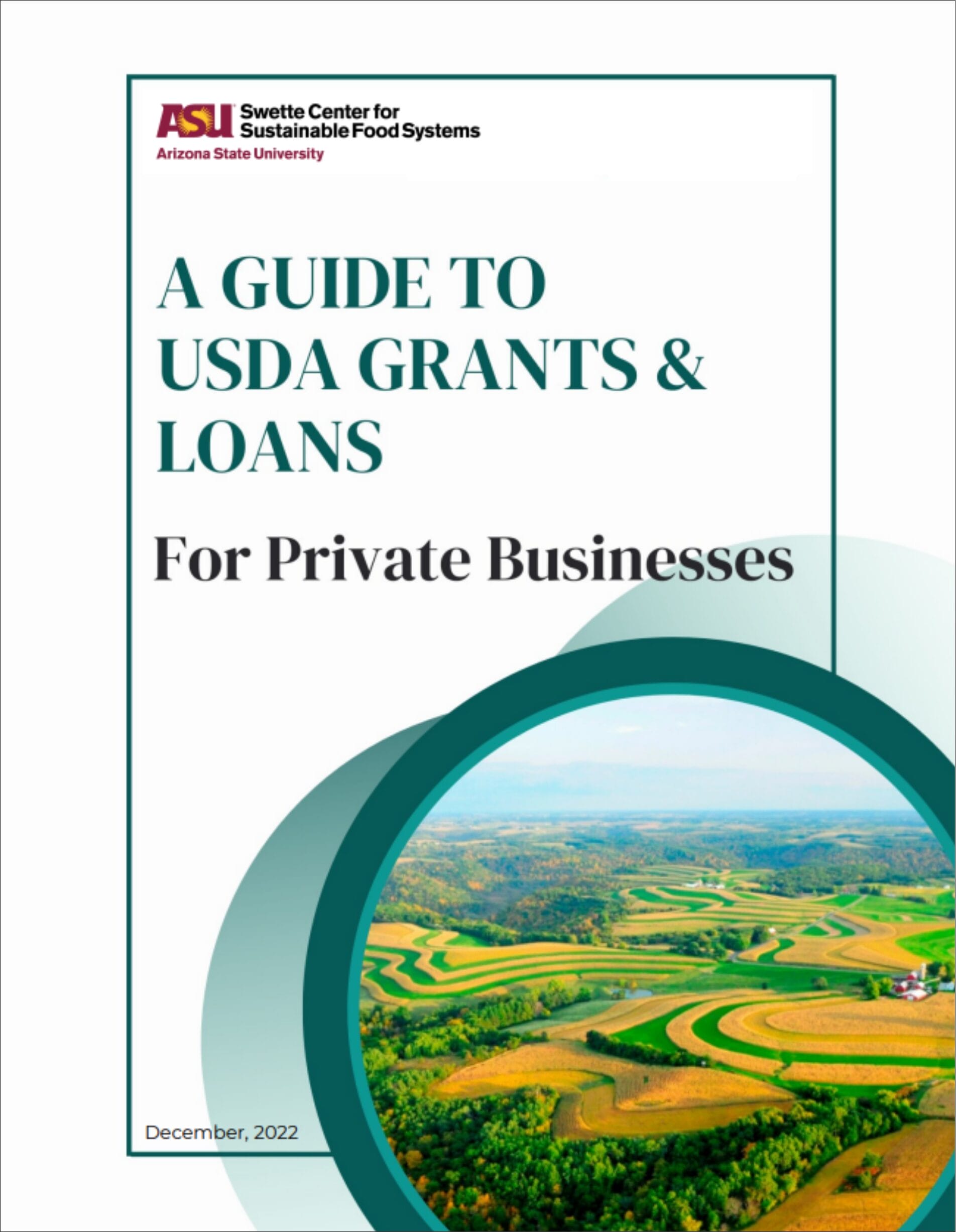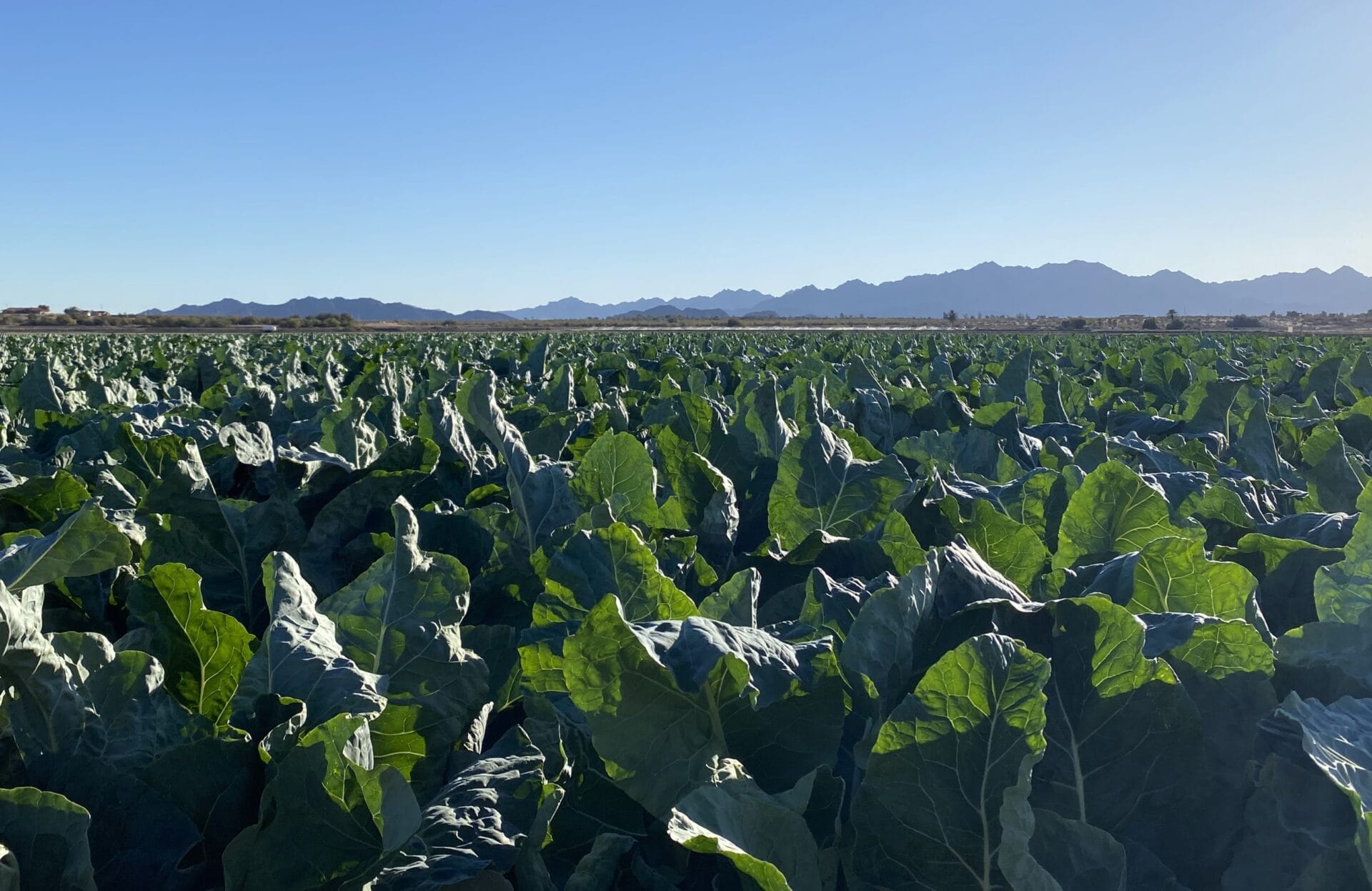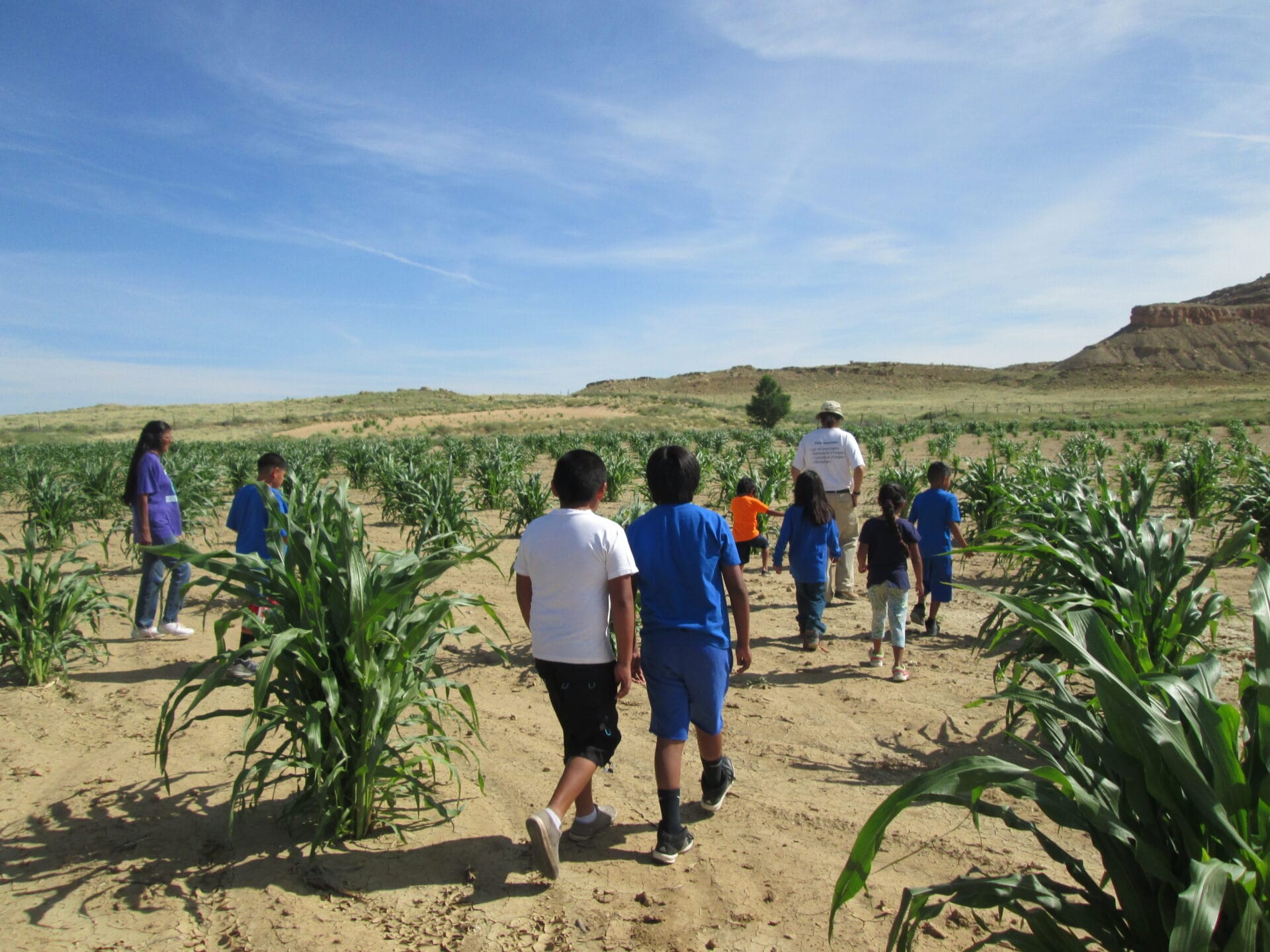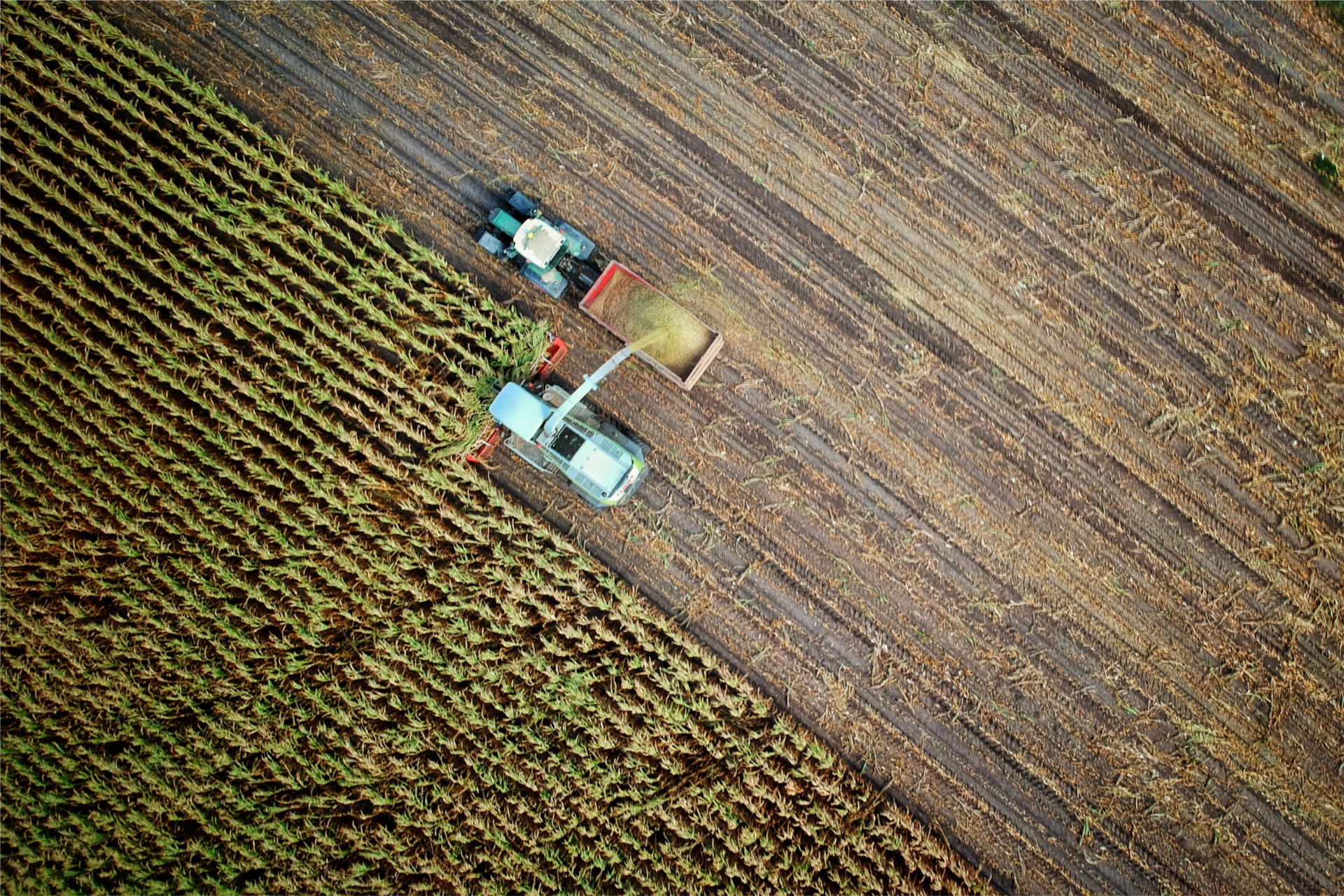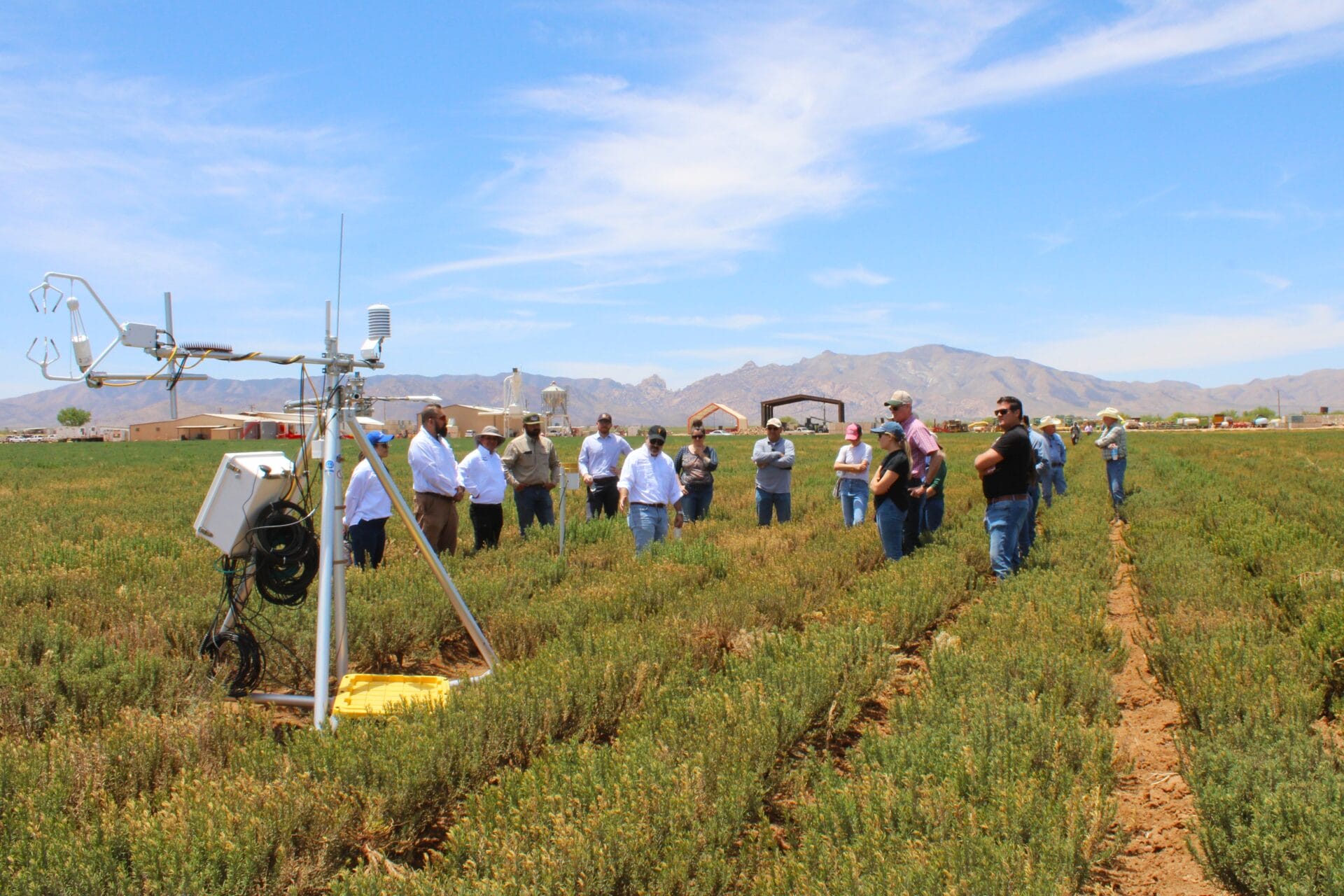
Engaging the private sector
Engaging businesses in food systems brings essential expertise and innovation for driving sustainable change.
Partnering with the private sector is critical to bolster sustainable supply chains, enhance sustainable farming practices, improve market access, shape consumer behavior, and direct financial investments toward unlocking the potential of sustainable food solutions. Partnerships between the Swette Center and industry are well underway to leverage our strengths in building resilient and inclusive food systems.
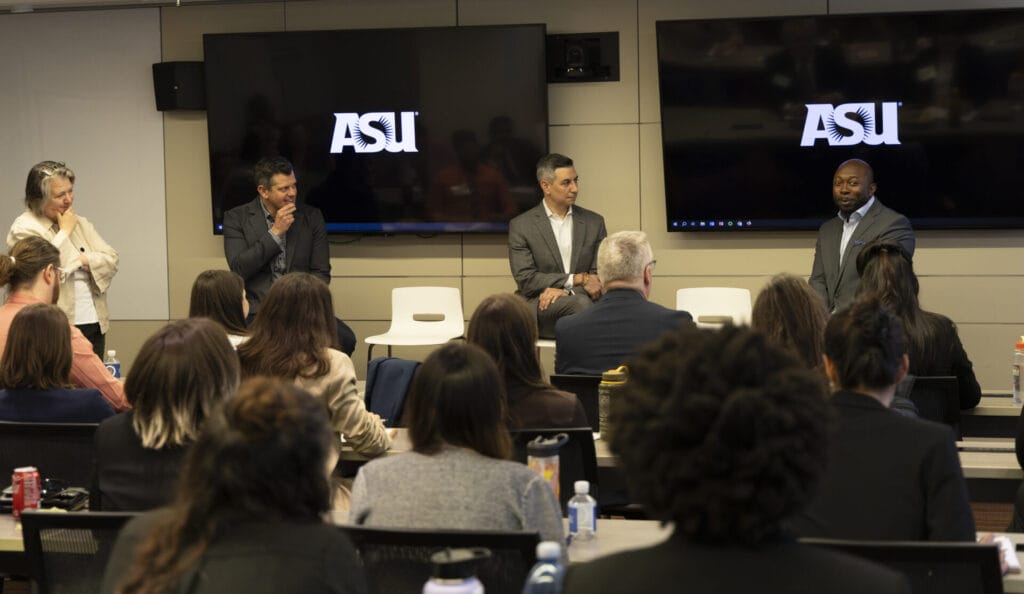
Swette Center engagement with the private sector
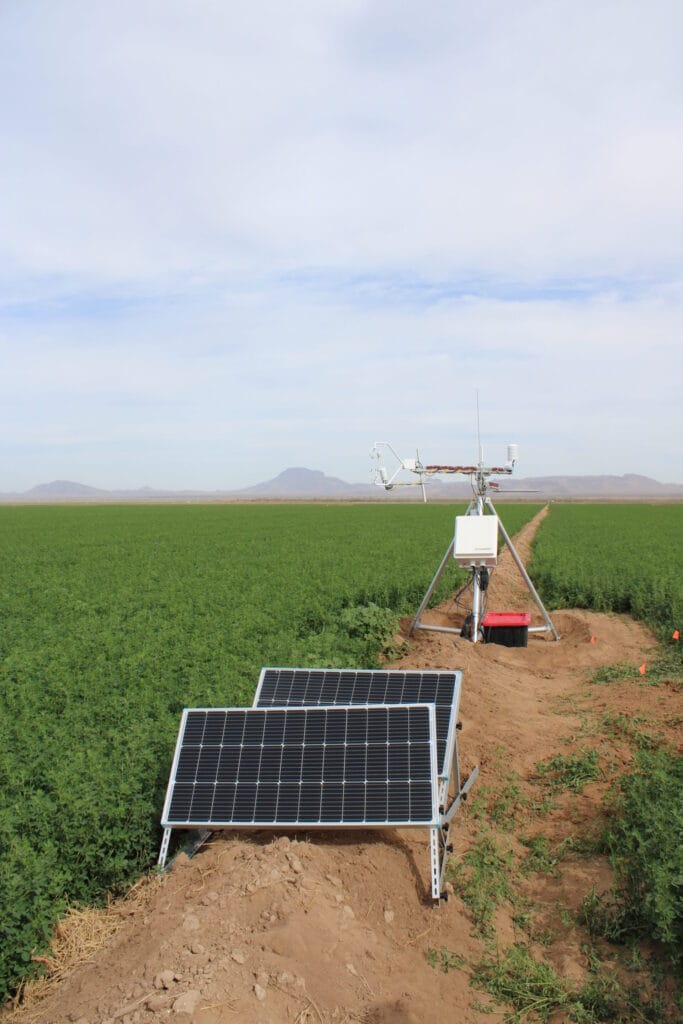
Advancing water conservation across Arizona farmland
With support from the Water Infrastructure Finance Authority of Arizona, the Swette Center is partnering with the ASU Center for Hydrologic Innovations and Phoenix-based soil health company MyLand to lead a major water conservation initiative across 2,400 acres of Arizona farmland.
Through this project, growers are gaining access to MyLand’s innovative Soil as a Service™ technology, which uses live, native microalgae to regenerate soil, enhance water retention, and improve crop yields. The Swette Center is leading outreach efforts by hosting on-farm demonstration days to show how this technology can boost water efficiency and advance sustainability.

Comparing the true cost of edible oils
Edible oils like canola, palm, and coconut are widely used across the food industry, but their production and use carry a range of impacts on human health, environmental sustainability, and social well-being. Some oils are more nutritious than others. Some require more land, water, or energy to produce. And some are tied to broader concerns, from deforestation to labor practices.
To better understand these trade-offs, the Swette Center is collaborating with the Global KAITEKI Center (a partnership between ASU and the KAITEKI Institute of Mitsubishi Chemical Group Corporation) on a true cost accounting study to compare canola, palm, and coconut oils. Our aim with this project is to provide evidence about the oils that lead to healthier diets and more sustainable choices.
USDA Grants and Loans Guide for Private Businesses
While the USDA offers many opportunities for funding and support, the Swette Center recognizes that it can be difficult to navigate grant and loan programs, and even more challenging to understand what you are eligible for and how to apply. We created this guide to demystify the process for the business community. It breaks down available grants and loans for private businesses with brief descriptions and hyperlinks to program websites where more can be learned.
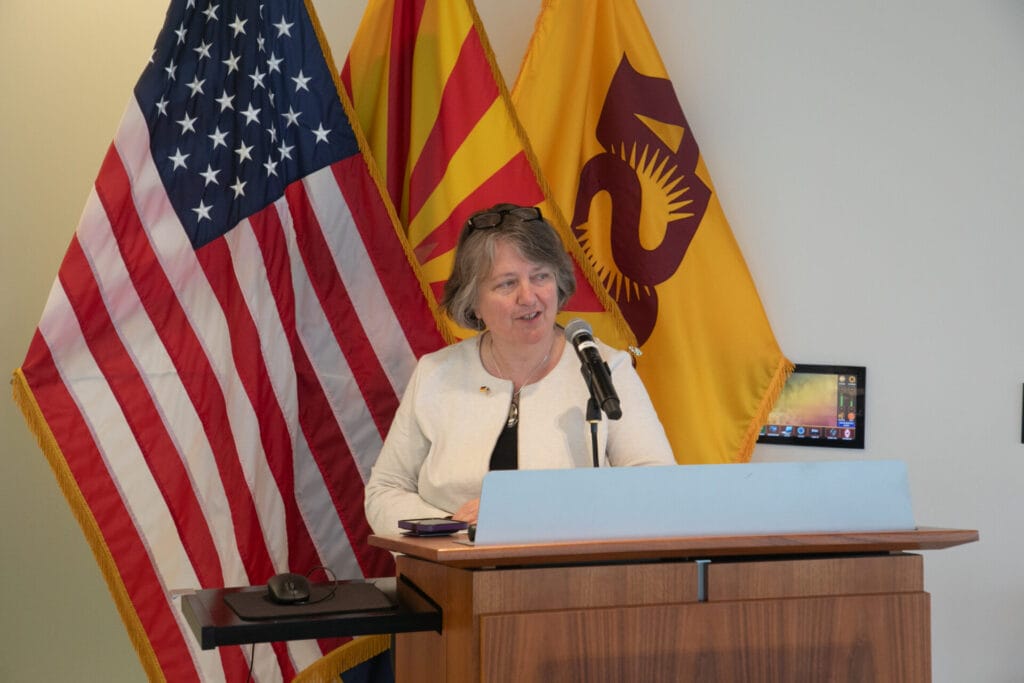
Forum series: Future of food
During the 2018-19 academic year, the Swette Center hosted five forums on the future of food. In these forums, leaders explored a range of issues, from new industry dynamics, to agtech innovations, global food security challenges, ecosystem services, and more. These events provided insights for policymakers in Washington, DC and allowed them to explore, through high-level conversations, cutting edge topics that can transform the food and agriculture sector.
The first forum featured three panelists from the private sector: James Rogers, CEO of Apeel Sciences, Brad Figel, Vice President of Mars, Inc, and Allison Kopf, CEO of Artemis. The question and answer session was energetic as people were clearly fascinated with the cutting edge initiatives undertaken by industry. Altogether, this event was a great launch of the Swette Center in Washington, DC.
Related research priorities
-

Arizona food systems
Being based in Arizona, it’s only natural that supporting our home state’s food system is a top priority for the Swette Center. Arizona’s food system faces unique challenges due to the state’s arid climate and water scarcity. However, Arizona also presents opportunities for innovative approaches to promote sustainable food production and distribution.
-

Empowering Indigenous foodways
Indigenous foodways hold immense importance as they represent the culmination of centuries of wisdom, culture and sustainable practices. They are the embodiment of indigenous communities’ deep connection to their lands, traditional knowledge and ancestral heritage. By preserving and revitalizing indigenous foodways, we aim to honor and celebrate the cultural diversity and resilience of indigenous peoples.
